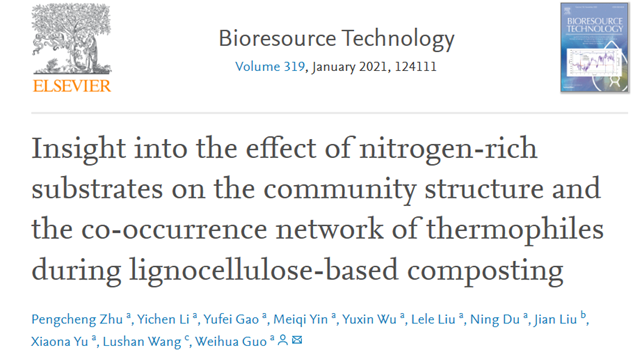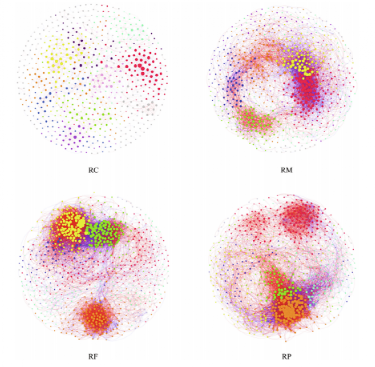
Prof. Wei-Hua Guo’s group,at School of Life Sciences, Shandong University unveiled the effect of addition of nitrogen-rich substrates on the community structure of thermophilic microorganisms during the composting of common reed, Their work not only revealed the assembly process of thermophilic microbial community, but also provided novel insights into the co-occurrence network among microorganisms. This study entitled "Insight into the effect of nitrogen-rich substrates on the community structure and the co-occurrence network of thermophiles during lignocellulose-based composting" has been published in the top journal Bioresource Technology (IF: 7.539). The first author is Peng-Cheng Zhu, while Prof. Wei-Hua Guo is the corresponding author.
As an economical and environmentally friendly technology, composting is widely used in the treatment of agricultural and industrial organic waste. Thermophilic microorganisms are the main participants in the composting process, and the succession of their communities is closely related to the dynamic changes of organic matter during the composting process. Previous studies focused on the effects of changes in physical and chemical properties during the composting process, but few on the impact of biological interactions (feeding, competition, and mutual symbiosis) on the microbial community.
The study showed that the raw materials and the composting process significantly changed the community composition of bacterial community, fungal community and the co-occurrence of thermophilic microorganisms by altering nutritional environments. Meanwhile, thermophilic microorganisms mainly promoted the conversion of substances through beneficial interactions. Moreover, the inter-kingdom competition was more intense than the intra-kingdom competition. Rare species play a key role in maintaining the microbial network structure. These findings expand our understanding of the succession and interaction of thermophilic microbial communities during composting.

This work is supported by the National Key R&D Program of China [No. 2017YFC0505905].
Paper link:
https://www.sciencedirect.com/science/article/pii/S0960852420313857